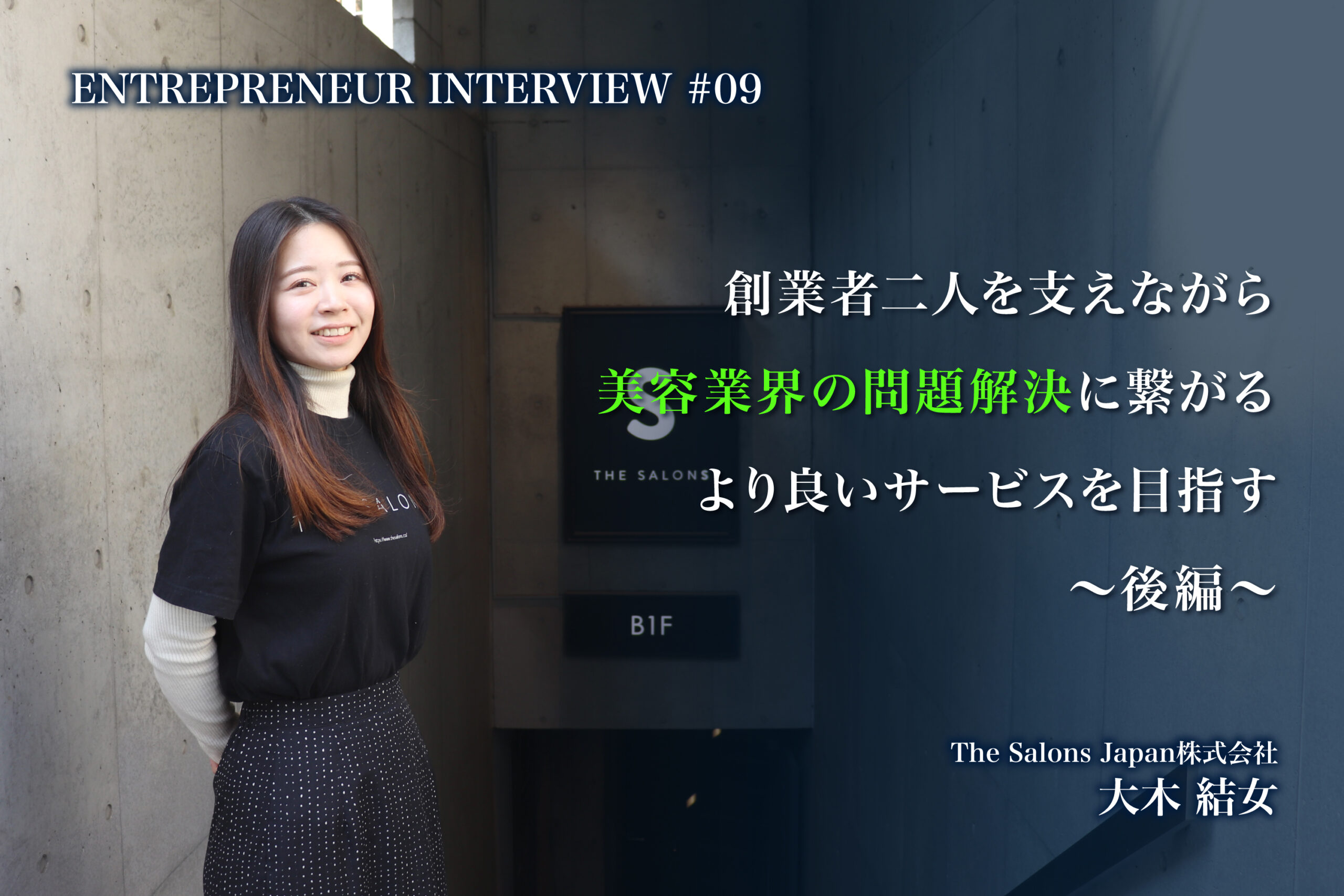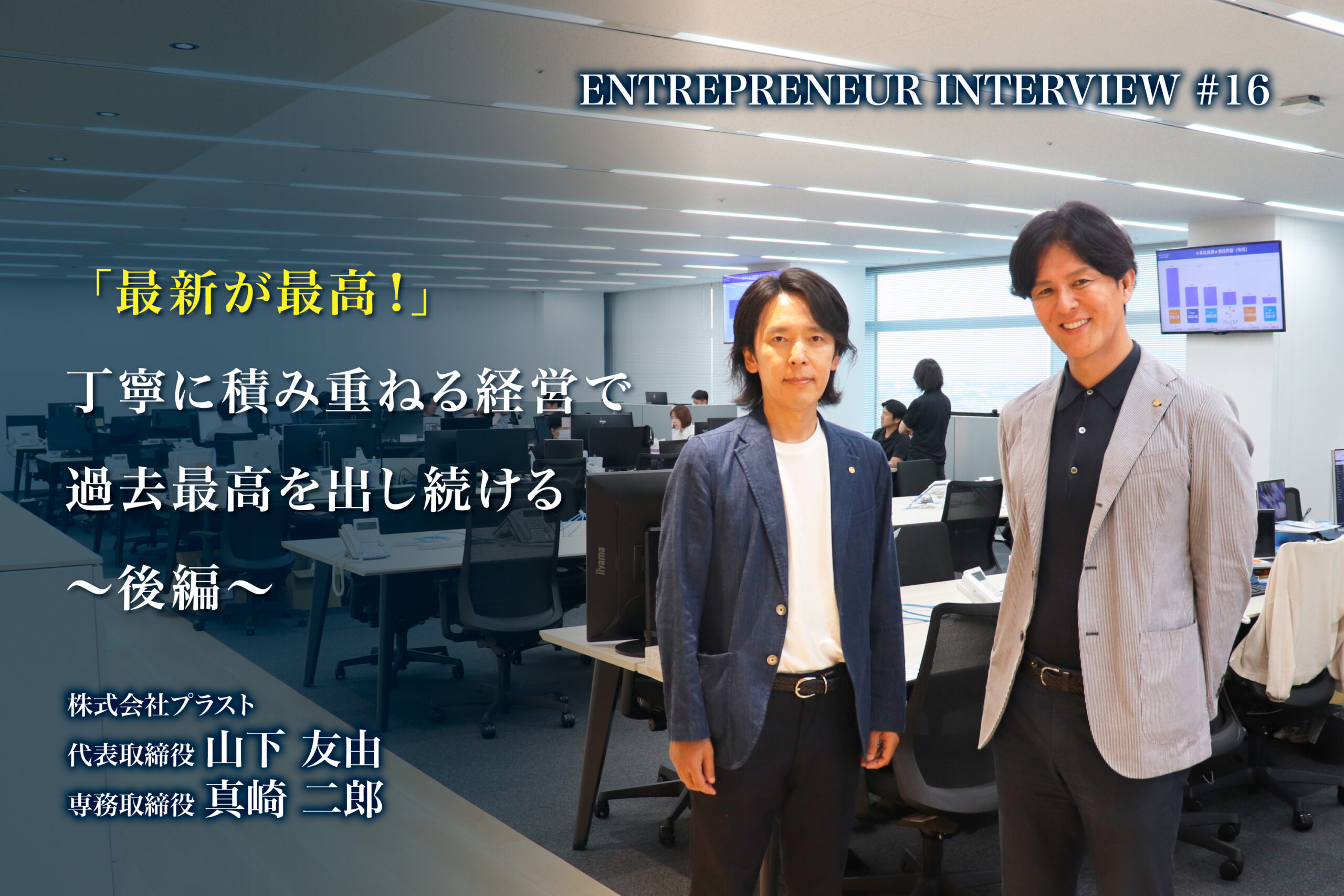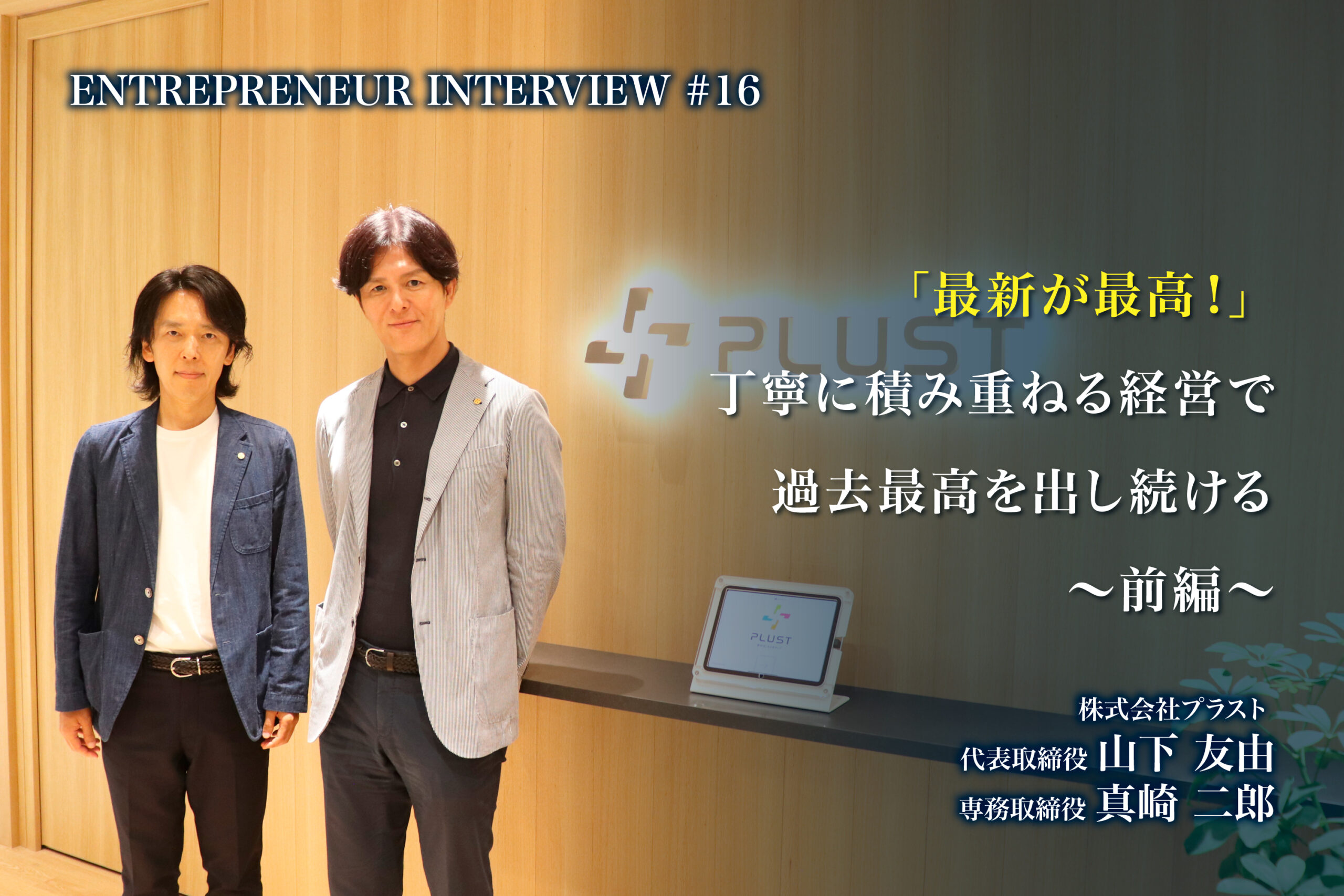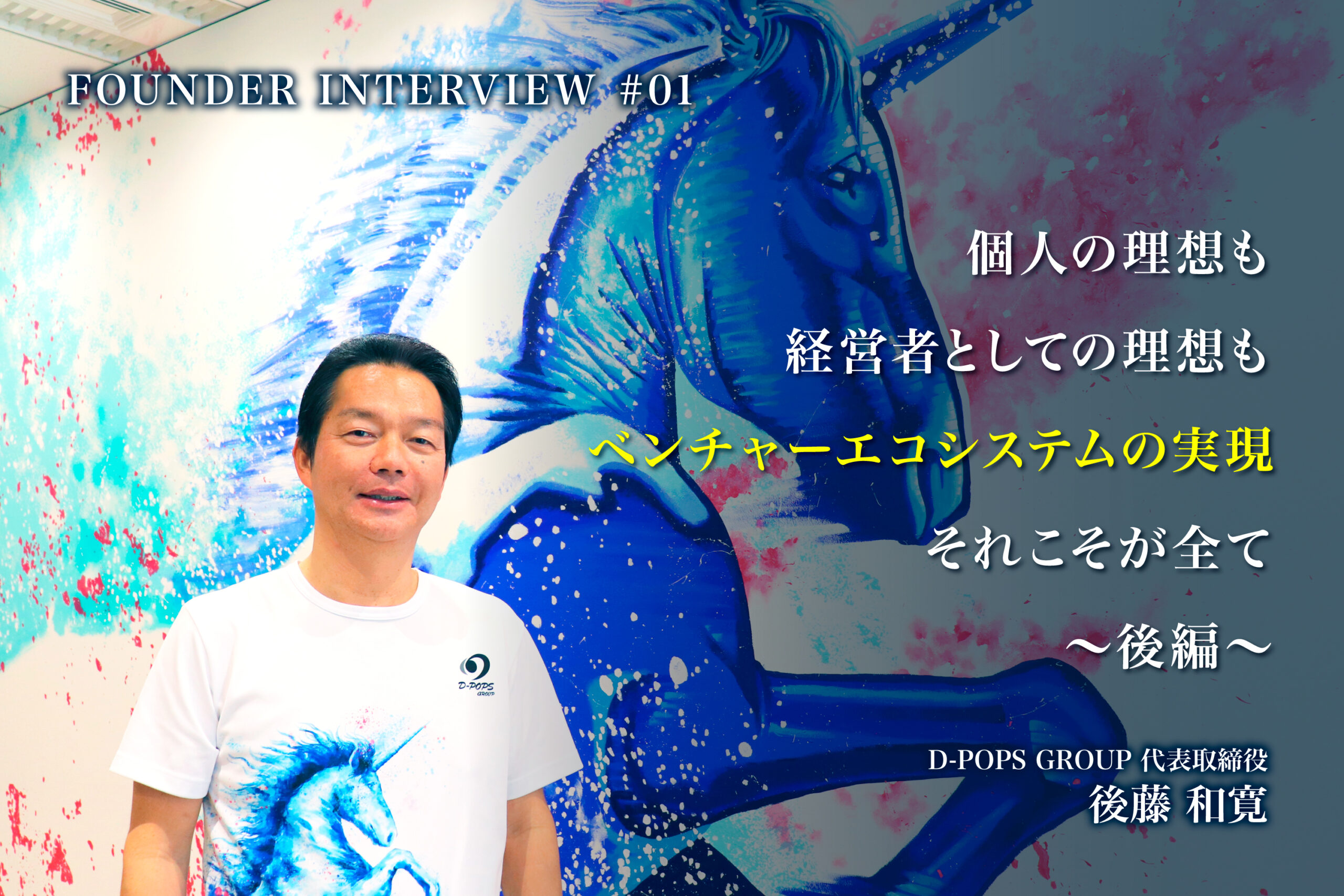
Aiming to Improve Services to Solve Problems in the Beauty Industry While Supporting Two Founders
Last year, our company entered into a strategic capital and business alliance with The Salons Japan, Inc., which leases private salon studios for professional beauticians, and we began our journey together as partners in the Venture Ecosystem.
☆You can see the press release regarding this strategic capital and business alliance with The Salons Japan Inc. on the following page:
https://d-pops-group.co.jp/en/column/the-salons-japan/
For this article, we interviewed Yume Oki, the first employee at The Salons Japan supporting the company’s two founders. (This interview was conducted in January 2025.)
This is the latter part of the interview. To read the first part, click the link below.
https://d-pops-group.co.jp/en/column/the-salons-japan-interview2-first-part/
◆Changes Since the Company’s Founding
Sugihara:
As the longest-serving employee, what changes have you observed from THE SALONS’ initial launch to now?
Oki:
This is something that our founders (President Shimizu and Director Kuboshima) have also mentioned, but for a while, we definitely went through a period of what you might call stagnation—a time when things just stayed the same day after day.
This was partly because we hadn’t focused on increasing our staff and were operating with a bare minimum team. Another possible reason that we were not changing anything was due to the lack of competing services emerging. Recently, the increase in team members has been a really significant transition for me.
With more people, I have the strong sense we are now able to tackle things that were previously just out of reach. They all only just joined us, so I truly hope they continue to stay in our company.
Although we had a period of stagnation, we continuously focused on solving problems as we opened each new location, as I mentioned before. We steadily fixed issues, so if something didn’t work at one location, we made sure to change it when opening the next location. We were proceeding slowly, but surely.
The timings for our recent fundraising and our increase in staff were almost simultaneous. Since then, the way we take on challenges and our mindset itself have suddenly transformed.
◆Changes After the Strategic Capital and Business Alliance
Sugihara:
D-POPS GROUP and The Salons Japan entered into a strategic capital and business alliance in June 2024. Have you felt any changes since the investment?
Oki:
Yes, of course, there was a lot of buzz at the outset of this investment. But since this was our first time to receive investment after operating solely as a private company, I felt like saying “Finally!”, and at the same time, I had a sense that everyone was placing high expectations on us.
Furthermore, although I’m still just a general employee, I do participate in board meetings as a secretary. I highly appreciate the chance to hear the opinions of those from different industries regarding aspects of our business that we, from an internal perspective, haven’t seen the need to change. Their positive evaluations of our strengths are also a big confidence boost. So, getting to participate has been a truly enriching experience.
I have also started to be involved in meetings with banks, and I genuinely feel that their assessment of us has changed. In addition, D-POPS GROUP’s President Goto has introduced some real estate companies to us, and when they showed us some of the properties, I was able to accompany them. He showed us how to see them from a different angle, which has allowed us to increase the number of our parameters we have for finding potential properties. I feel our perspective on business growth has definitely shifted as a result.
Sugihara:
Speaking of buzz, since the rest of our group’s companies are in different industries, we didn’t feel the impact directly. Was there a buzz in the beauty industry?
Oki:
Yes, after the press release was published, we received congratulations from a lot of different people, including some who are quite prominent in the beauty industry. Some were even surprised, as they hadn’t realized we had been operating purely on our own until that point.
Also, the fact that D-POPS GROUP was the company that backed us was also a bit of a sensation, and I heard that some of President Shimizu’s business leader acquaintances even asked him to introduce them to President Goto.

◆On President Shimizu and Director Kuboshima
Sugihara:
Your two founders are quite rich in personality! President Shimizu is a beauty professional, a boxer, and a licensed real estate agent, while Director Kuboshima happens to be a long-time friend of mine. What are your impressions of them?
Oki:
Their personal airs and ways of thinking are different. President Shimizu is the type who immediately sees the problems in front of him and fixes them quickly. Director Kuboshima is usually calm and has a very cool-headed perspective, always thinking about the long-term. I often feel that the reason they are so successful is precisely because they have these two different ways of thinking.
However, outside of work—for instance, when they go out for a drink—they both seem to genuinely enjoy themselves. The fact that they can clash at work but maintain a strong personal friendship seems to be the secret to their success. In meetings with them, I’ve personally heard President Shimizu say “I’ll let Director Kuboshima manage our finances,” and Director Kuboshima say “I’ll leave the beauty professional matters to President Shimizu, because he understands them best.” It’s amazing that they have that level of mutual respect and trust.
◆Team Atmosphere
Sugihara:
I hear the team has grown recently. How is the team atmosphere now?
Oki:
Since I joined in the company’s early days, I feel like one of my roles is to convey my opinion when the situation calls for it. However, I really appreciate that our newly-joined members are generally calm, soft-hearted people, who aren’t the type to jump into conflict.
But rather than being just kind and gentle, they all have a strong sense of responsibility, too. They believe that what they are doing is their personal duty, and they fully commit to it. I am so glad that we have attracted people with those qualities.
Sugihara:
Indeed, everyone seems to have a quiet and peaceful aura, but I can tell that they also have a highly professional business-sense.
Oki:
Exactly. They take total ownership of the tasks they are in charge of, so I can confidently entrust things to them. Our SNS manager, for instance, noticed a problem after having a simple, casual conversation with me, and immediately updated our social media without me having to say anything. Another member noticed my workload was heavy and told me, “I can handle this part myself, so don’t worry about it.” The strength of our team is definitely improving!
Sugihara:
The potential for expanding your company is certainly increasing. We just talked about how your two founders are highly individual, and you yourself possess many talents. I heard that along with keeping a busy work schedule, you are a Frescoball player, as well!
Oki:
Yeah, I play Frescoball. Most people might not be familiar with it, but it’s a beach sport that originated in Brazil. Despite being a ball game where players face off against each other, your opponent is not an enemy, but a partner with whom to keep a rally going, so it’s a very peaceful sport. The competition lies in accumulating points, and you’re judged subjectively on your level of cooperation and aesthetic quality, among other things.
Sugihara:
That sounds like a wonderful sport. Do your practices also take place on the beach?
Oki:
Where there’s no beach, we practice in parks or gyms. The tournaments, however, are held on the beach.
Sugihara:
There are tournaments, too??
Oki:
Yes! There are international tournaments, and this year, it will be held in Japan! Our company’s Director Kuboshima is actually the president of the Japan Frescoball Association.
Director Kuboshima is also the president and CEO of RYOGEISYA Inc., an IT culture company that does many different things. Despite doing so many different things, they aren’t scattered. Rather, they dedicate focus and delegate workers to each area of business.

◆On THE SALONS Shinjuku, Opened in January 2025
Sugihara:
Well, the Shinjuku location opened in January 2025. Have you been receiving tenant applications?
Oki:
We sure have! Out of the total 17 salon studios, 8 studios are currently filled (as of February 17, 2025). The actual viewings only started yesterday, but there were people who had already decided to move in before seeing the location.
Sugihara:
It’s surprising that so many people decided to move in before viewing the facilities themselves.
Oki:
Yes, it is. Those contracts are already confirmed, and when we started to show the studios yesterday, two or three groups already came and are considering whether to move in. There has recently been a trend of people deciding before construction is even finished, which we are very grateful for, but I think most people prefer to decide after seeing the actual location. We hope to finalize more contracts through in-person viewings, ideally by the time we start operations around February.
By the way, for the first time, two of the studios we prepared are designed for manicure services, and both of those studios are already contracted.
Sugihara:
In addition to the manicure studios you just mentioned, do beauty professionals in THE SALONS provide any other services besides hairdressing?
Oki:
Yes, we also have tenants who focus on the eyebrow and eyelash business. Of course, there are also aesthetics salons, and some salons do other beauty-related businesses like chiropractic whole-body treatments and Korean Golki massage. Since we have various types of salons on one floor, not just hair salons, I think some customers may very well look at the different shops and signs and encounter a kind of space they’ve never seen before but find interesting.
◆On THE SALONS Shinsaibashi, Opening Spring to Summer This Year
Sugihara:
After Shinjuku, the Shinsaibashi location in Osaka will be your first expansion outside the Kanto region, opening sometime this spring or summer. What is the location like, and what clientele are you targeting?
Oki:
We’ve always considered expanding to thriving major cities outside Kanto, such as Fukuoka in Kyushu, and Nagoya in Tokai or Osaka in Kansai. We are very pleased that we were able to secure such a great location in Osaka.
Shinsaibashi is an area that already has many hair salons, and we have been receiving inquiries from people in that area even before the opening announcement. I look forward to telling them about the opening we have planned and asking for them to place an official inquiry.
The location is also close to Midosuji and the luxury brand district. I've heard from people operating in the Kansai area that Shinsaibashi is a great town, so I believe it is a superb location. It faces a main street, is close to two stations, and the ability to put up a large sign on the 3rd floor was a key point. The Shinsaibashi location will also open nail units, just like Shinjuku, so we encourage inquiries.
Sugihara:
Do you have any ideas for future services you’d like to launch?
Oki:
The background behind me joining The Salons Japan was my attraction to a service that could solve the problems faced by beauty professionals in the industry. So, the core premise is to continuously create better services for problem-solving.
The most common issues are related to managing a business and opening street-level storefronts. They are professionals in the beauty industry, but they naturally lack knowledge of real estate and business management in the beginning. I personally hope we can create an actual system that allows our tenants to seek advice from us more easily.
I also hope our services can evolve so that after our tenants build up their acumen at THE SALONS and open a street-level shop on their own, they will say “I’m so glad I came from THE SALONS”, or “I was able to open a shop like this because of THE SALONS”.
Actually, when some of our former tenants have decided to leave THE SALONS to open up their own shops, they’ve run into real estate problems, so I would also like to make a support system to help them avoid such troubles.

◆“Realizing a Venture Ecosystem”
Sugihara:
D-POPS GROUP has a vision of “producing numerous growing startups that bring transformation to society”. In short, we aim to realize a Venture Ecosystem. What are your thoughts on building this Venture Ecosystem?
Oki:
Well, until these investment discussions began, I personally was unfamiliar with the term “Venture Ecosystem”, but after this conversation and reading your website, now I know about it.
As I mentioned, we are already feeling the impact of the investment, so my hope is that by actively incorporating the input we receive, we can establish a positive feedback loop.
Since we haven’t formed many connections with the other group companies yet, I also would like to see some initiatives that foster deeper relationships between The Salons Japan and everyone else in D-POPS GROUP. Even though we are a unique entity within the group, I hope there will be more chances for us to connect.
◆5-Year and 10-Year Goals
Sugihara:
Yeah, let’s work on those kinds of initiatives! Now, could you share the ideal vision for The Salons Japan—and for you personally—10 years in the future?
Oki:
I believe that THE SALONS is a good service, and I believe it is beneficial for the beauty professionals who have moved in.
Since I cannot recommend a service that I personally do not believe is good, my vision for 10 years from now is that THE SALONS’ services will have further improved and become a system that leads to solving problems within the beauty industry.
Looking 10 years out is difficult, but President Shimizu has a goal of opening 30 locations in the next 5 years, so I hope we can work together as a team to achieve that. I believe that the investments in our company have increased our strength, and we want to continue working hard to make our services even more desirable to our customers.
◆Message to Readers Visiting Our Website
Sugihara:
30 locations in 5 years. A goal like that is quite aggressive, but also excellent. Finally, could you share a message for our online readers?
Oki:
I guess most people who read this interview will be unfamiliar with THE SALONS. THE SALONS is a service that can solve the issues within the current beauty industry, which is often perceived as demanding and having poor working conditions.
Also, the beauty professionals who move in are truly good human beings, and there really isn’t much trouble in our salon studios. Our tenants are independently minded and successful in sales. As I mentioned earlier, they’re also very dedicated to learning, and I personally feel that they are all great people.
I would love for you to look up THE SALONS and visit one of our locations. Wherever you visit, you will find wonderful beauty professionals at every salon!
Interview conducted by D-POPS GROUP’s advisor Genta Sugihara.
The Salons Japan
Company President and CEO: Hidetoshi Shimizu
Address: 2F Kid Ailack Building, 2-43-11 Matsubara, Setagaya-ku, Tokyo
Established: November 30, 2018
Website: https://www.thesalons.co/






